Universal was founded in 1912, making it the oldest surviving film studio in the country. Universal merged with NBC in 2004, and the subsequent NBCUniversal was purchased by Comcast in 2011. In 2016, Universal acquired DreamWorks animation from 20th Century Fox, and released their first film under that umbrella in February. Universal often focuses on mass appeal films, including Jaws, E.T., the Bourne series, and the ongoing Fast and the Furious franchise.
Perhaps due to that focus, Universal did not release LGBTQ-inclusive films until the 1990s. Even then, the 1991 adaptation of Fried Green Tomatoes removed the majority of the lesbian content from the novel. LGBTQ representation in Universal films since has been a mixture of highs and lows, including films such as To Wong Foo, Thanks for Everything! Julie Newmar (1995), Mulholland Drive (2001), I Now Pronounce You Chuck and Larry (2007), Bruno (2009), Scott Pilgrim vs. The World (2010), Kick-Ass 2 (2013), Riddick (2013), Legend (2015), Neighbors 2: Sorority Rising (2016), Get Out and Fifty Shades Darker (2017).
Blockers
Vito Russo Test: Pass
Widest theatrical release: 3,418 theaters
This GLAAD Media Award-nominated sex comedy follows three teenage girls who make a pact to lose their virginity on prom night and their parents who are trying to interfere. One of the girls, Sam, is a closeted lesbian, but agrees to go along with the pact as a way to bond with her best friends before they all leave for college. Early on in the film, audiences meet her crush, Angelica, who is out at school, as Sam spots her across the cafeteria and the music swells. Later, Sam is at home photoshopping herself as Gabrielle next to Xena, and she has a sweet moment at prom with Angelica who came to the dance in a “Galadriel cape” she made for a convention.
In a touching story, Sam’s estranged dad agrees to help the other parents in their attempts to stop their daughters from having sex, but with the reasoning that he knows Sam is gay and he is worried that she will regret going through with sleeping with her date, Chad. Ultimately, Sam comes out to her father who accepts her and encourages her to come out to her best friends. She does and they support her, and then shortly after Sam gets her perfect prom night kiss with Angelica.
Raunchy comedies have a long – and continuing – history of using queer people as just punchlines and stereotypes, but Blockers shows that a film can be hilarious, have outrageous, gross and rowdy moments, and still include and respect LGBTQ characters.
Fifty Shades Freed
 Vito Ruso Test: Fail
Vito Ruso Test: Fail
Widest theatrical release: 3,768 theaters
The third and final installment in the Fifty Shades trilogy sees the return of Christian Grey’s work colleague, Ros Bailey, and her girlfriend Gwen, who audiences met in the second film. Unfortunately, Ros has even less of a role here than in the second film, and her scenes are largely confined to the opening wedding scene and another background scene.
Green Book
Vito Russo Test: Pass
Widest theatrical release: 3,768 theaters
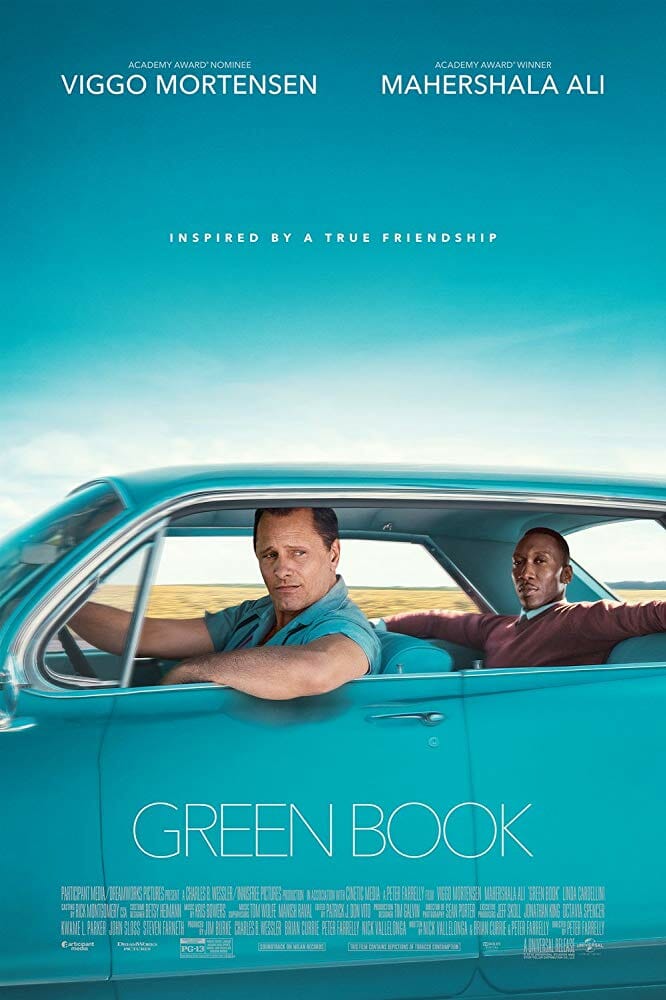 Green Book was inspired by the story of real life figure Dr. Don Shirley, a queer Black musician who toured the country throughout the 1960s. The film centers on his tour through the Deep South in 1962, and the friendship he forms with Tony Vallelonga, the white man he hired to be his bodyguard and chauffer. In a mid-film scene, Shirley is caught by the police in a sting operation having sex with another man at a local YMCA. Vallelonga bribes the officers to let Shirley and the man he was with go. This leads to a disagreement between the two as Shirley says Vallelonga “rewarded” the officers by paying them off when they were wrong for treating him that way. Later, Shirley apologizes to Vallelonga who replies, “I been working night clubs in New York City my whole life, I know it’s a complicated world.” In one earlier moment, Shirley talks about his ex-wife, but considering comments made by Shirley’s family and the overall film, GLAAD counted him as gay in its tally.
Green Book was inspired by the story of real life figure Dr. Don Shirley, a queer Black musician who toured the country throughout the 1960s. The film centers on his tour through the Deep South in 1962, and the friendship he forms with Tony Vallelonga, the white man he hired to be his bodyguard and chauffer. In a mid-film scene, Shirley is caught by the police in a sting operation having sex with another man at a local YMCA. Vallelonga bribes the officers to let Shirley and the man he was with go. This leads to a disagreement between the two as Shirley says Vallelonga “rewarded” the officers by paying them off when they were wrong for treating him that way. Later, Shirley apologizes to Vallelonga who replies, “I been working night clubs in New York City my whole life, I know it’s a complicated world.” In one earlier moment, Shirley talks about his ex-wife, but considering comments made by Shirley’s family and the overall film, GLAAD counted him as gay in its tally.
The film has been surrounded by controversy as Shirley’s family spoke out in an interview with Shadow and Act about being unhappy with the film, calling it a “symphony of lies” and challenging screenwriter Nick Vallelonga’s (Tony’s son) statement that Shirley gave his permission. Shirley’s nephew Edwin said that Shirley “was as open about his sexuality as he thought it was anybody else’s right to know. If you were to ask him, ‘Dr. Shirley, are you gay?’ He might answer, ‘Why? Are you interested?’ If the answer was, ‘No,’ then he’d say, ‘Well, it’s none of your business.’”
Ultimately, it is disappointing that Green Book tries to tell a story about racism, but positions the point of view as being that of Vallelonga rather than Dr. Shirley, whose personal experience would have made for a much more authentic story. This change would have also allowed the film to take advantage of the missed opportunity to explore how being both Black and queer uniquely shaped Shirley’s life and career, something which is only ever touched on in the scenes described above.
Jurassic World: Fallen Kingdom
Vito Russo Test: Fail
Widest theatrical release: 4,485 theaters
While no actual LGBTQ characters made it into Jurassic World: Fallen Kingdom, actress Daniella Pineda revealed during the film’s press tour that there was a line cut from the film “for sake of time” which would have revealed that her character Zia is a lesbian. She described the scene, saying, “I look at Chris [Pratt, lead character Owen Grady] and am like, ‘Yeah. Square jaw. Good bone structure. Tall. Muscles. I don’t date men, but if I did, it would be you. It would gross me out, but I would do it.'” In this case, the decision to cut the line which would confirm her identity while also undermining it was actually for the best; though it seems improbable that such a short line was cut solely for time in a film that runs over two hours. There is a third Jurassic World coming in 2021 where filmmakers have an opportunity to bring Zia back with a more developed story, and confirm her identity without leaning into damaging stereotypes.
Mamma Mia! Here We Go Again
Vito Russo Test: Pass
Widest theatrical release: 3,514 theaters
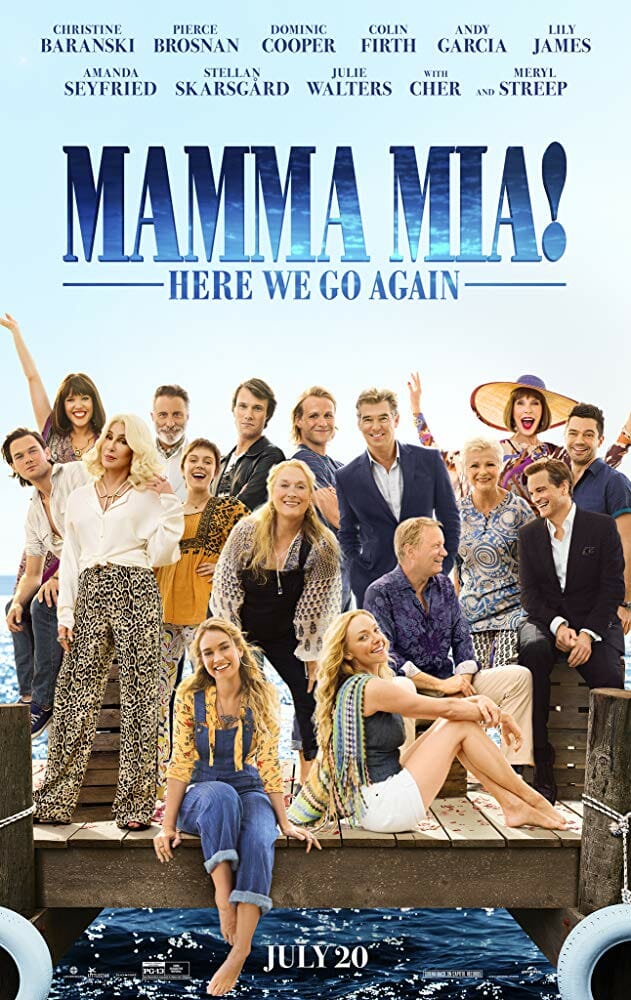 A sequel to 2008’s ABBA jukebox musical, Mamma Mia!, Here We Go Again takes place both in the present day where Sophie is trying to open a hotel to honor her late mother Donna, and in the past, where Donna has summer flings with three men and settles on a Greek Island. The first man Donna sleeps with in flashbacks is Harry, who came out as gay in the first Mamma Mia film. In the past, we see him woo Donna, though he refers to her as “the only girl” he thinks he’ll ever love. In the present, Harry does not have a husband or boyfriend, but he flirts with a ferry attendant who proceeds to get very flustered. In a post-credits scene, the ferry attendant stares longingly at young Harry and starts singing “Take a Chance on Me.” If there are future Mamma Mia films, Harry should have a substantial romantic interest, as most all the core straight characters in the film do.
A sequel to 2008’s ABBA jukebox musical, Mamma Mia!, Here We Go Again takes place both in the present day where Sophie is trying to open a hotel to honor her late mother Donna, and in the past, where Donna has summer flings with three men and settles on a Greek Island. The first man Donna sleeps with in flashbacks is Harry, who came out as gay in the first Mamma Mia film. In the past, we see him woo Donna, though he refers to her as “the only girl” he thinks he’ll ever love. In the present, Harry does not have a husband or boyfriend, but he flirts with a ferry attendant who proceeds to get very flustered. In a post-credits scene, the ferry attendant stares longingly at young Harry and starts singing “Take a Chance on Me.” If there are future Mamma Mia films, Harry should have a substantial romantic interest, as most all the core straight characters in the film do.
Early in Here We Go Again, young Donna sings “When I Kissed The Teacher” with the pronouns changed to be about a woman. Producer Judy Craymer said of this decision, “Because in the song written by ABBA in the ’70s, it was obviously a male teacher, and the vice chancellor is a woman, played by Celia Imre, which we thought was part of Mamma Mia, the whole blend of empowerment and fun.” Despite singing the song with a pronoun change, Donna is only ever show being romantically involved and interested in men over the course of the film. However, the vice chancellor she pecks during the performance has a considerable reaction to the kiss, singing “What a mad day/Now I see everything in a different light/What a mad day/I was up in the air and she taught me a lesson alright.” As such, GLAAD did count her as a queer character in its tally.
Night School
Vito Russo Test: Pass
Widest theatrical release: 3,019 theaters
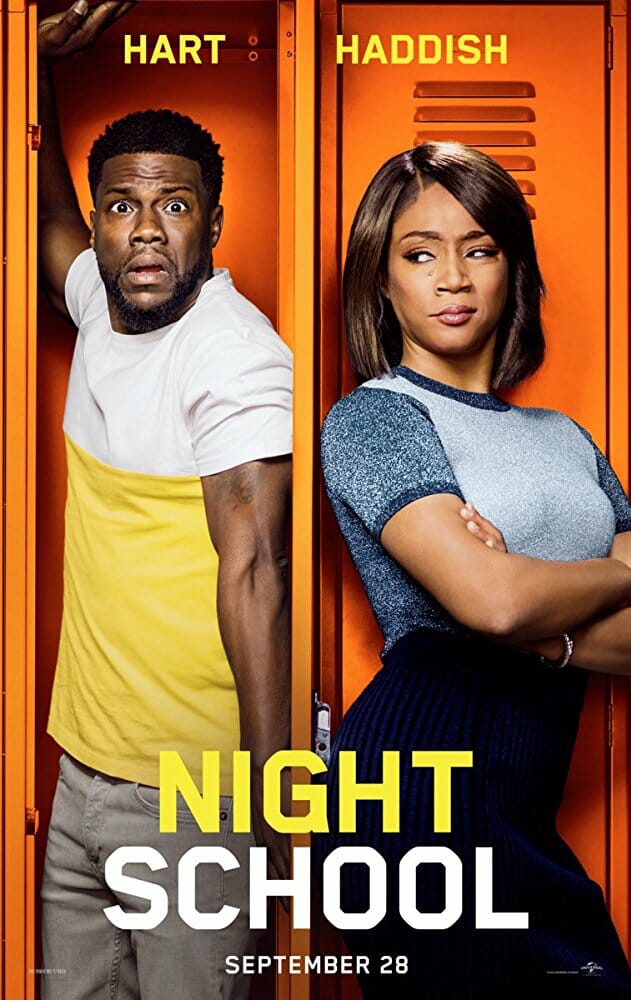 This comedy follows high school dropout Teddy as he enrolls in night school to receive his GED. Over the course of the film, he eventually bonds with his no-nonsense teacher, Carrie, and the other students. Near the film’s end, Teddy believes Carrie is hitting on him, to which she replies, “Fool, I’m gay!” He says he is “getting a different vibe,” but eventually does believe her. It is disappointing that Carrie isn’t believed at first when she asserts her own identity and that she has no romantic interest in the film, but it is still a noteworthy step forward for the co-lead character of a major studio comedy to be an out Black lesbian.
This comedy follows high school dropout Teddy as he enrolls in night school to receive his GED. Over the course of the film, he eventually bonds with his no-nonsense teacher, Carrie, and the other students. Near the film’s end, Teddy believes Carrie is hitting on him, to which she replies, “Fool, I’m gay!” He says he is “getting a different vibe,” but eventually does believe her. It is disappointing that Carrie isn’t believed at first when she asserts her own identity and that she has no romantic interest in the film, but it is still a noteworthy step forward for the co-lead character of a major studio comedy to be an out Black lesbian.
One joke the film could have done without is a punchline about prison rape. One of the characters in the GED class is in prison, and Carrie says to him, “You need to keep your booty closed, that’s what you need to do. You in jail!” These kind of jokes are reductive, making sexual violence and men having sex with men a punchline, and it was especially grating to have the joke delivered by the only queer character.
Truth or Dare
Vito Russo Test: Pass
Widest theatrical release: 3,068 theaters
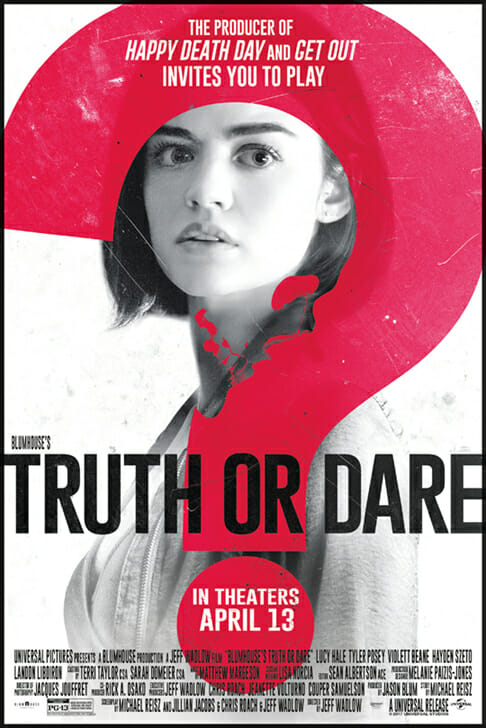 Truth or Dare follows a group of college students who go to Mexico for spring break and then accidentally fall victim to a curse that will kill them if they do not follow through on their given truth or dare. One member of the group is Brad, who is established as gay from the beginning of the film. Before spring break goes awry, audiences see a moment where he shares a kiss with another man, and terse conversations with his strict father who he is not yet out to. When the group starts getting “truth or dared,” Brad is dared to come out to his dad. Sadly, the audience doesn’t get to see the scene, but Brad reports back to the group that it went well. However, Brad’s next dare shows him forced to hold his father at gunpoint while he begs for his life. A police officer reports to the scene and fatally shoots Brad. Though it is unfortunate that Brad dies, this film is actually one of very few cases where anyone truly can (and does) die as all but one member of the original group are killed. Brad’s inclusion was actually a surprising step forward for the horror genre which has often either left LGBTQ people out of the story or portrayed those characters as villains. It is also an instance of reflecting the real world, as GLAAD’s Accelerating Acceptance reports have shown that 20 percent of Americans 18-34 identify as LGBTQ.
Truth or Dare follows a group of college students who go to Mexico for spring break and then accidentally fall victim to a curse that will kill them if they do not follow through on their given truth or dare. One member of the group is Brad, who is established as gay from the beginning of the film. Before spring break goes awry, audiences see a moment where he shares a kiss with another man, and terse conversations with his strict father who he is not yet out to. When the group starts getting “truth or dared,” Brad is dared to come out to his dad. Sadly, the audience doesn’t get to see the scene, but Brad reports back to the group that it went well. However, Brad’s next dare shows him forced to hold his father at gunpoint while he begs for his life. A police officer reports to the scene and fatally shoots Brad. Though it is unfortunate that Brad dies, this film is actually one of very few cases where anyone truly can (and does) die as all but one member of the original group are killed. Brad’s inclusion was actually a surprising step forward for the horror genre which has often either left LGBTQ people out of the story or portrayed those characters as villains. It is also an instance of reflecting the real world, as GLAAD’s Accelerating Acceptance reports have shown that 20 percent of Americans 18-34 identify as LGBTQ.
Notably, the first character who dies is a very stereotypical “frat guy,” Ronnie. In the first (non-deadly) game of truth or dare, Ronnie dares two girls to kiss, and in retaliation, he is dared to give another man a lap dance. Ronnie is clearly uncomfortable with doing this, but it is important to note that the film made Ronnie’s homophobia and he himself as the butt of the joke, rather than expecting the audience to side with Ronnie in being uncomfortable.
Welcome to Marwen
Vito Russo Test: Fail
Widest theatrical release: 1,911 theaters
Based on the true story and the critically acclaimed documentary Marwencol, Welcome to Marwen follows artist Mark Hogancamp who creates his own fantastical world with custom action figures as a way of processing his own trauma. Mark was brutally beaten by a group of men at a bar who hear him talking about wearing women’s high heels. He was so badly injured in the attack that he forgot most of his life, and says the only thing he remembered from the attack is that they called him “queer.” The film makes it very clear that Mark does not actually identify as queer or transgender, though. He says he wears the shoes to feel closer to women, to feel their “essence.” The best that can be said for the film is that it did not use Mark’s interest in wearing high heels as a punchline.
OPPORTUNITIES AHEAD
It was announced this spring that out actor and writer Billy Eichner will write and star in a new romantic comedy for Universal centered on two men who have previously had commitment problems and are now attempting a steady relationship. There is not currently a title or release date known, but Neighbors director Nick Stoller is attached to direct, co-write, and co-produce alongside fellow producer Judd Apatow. In addition, out Love, Simon director and prolific producer Greg Berlanti is attached to direct and produce a Rock Hudson biopic for Universal. The film, still untitled and with no date, will be adapted from the book All That Heaven Allows: A Biography of Rock Hudson which explored Hudson’s life being closeted in Hollywood and his ultimate death of AIDS-related complications in 1985. Blumhouse Productions, which is under a first-look deal with Universal, is developing a horror film from out director and writer Dee Rees about a Black lesbian couple. Details are still thin, and there hasn’t been an update since last fall, but GLAAD is looking forward to this project moving forward.
Focus Features was established in 2002 when USA Films, Universal Focus, and Good Machine combined into a single company. Focus Features produces and distributes its own features, in addition to distributing foreign films, establishing an impressive record of critically acclaimed and popular LGBTQ-inclusive films that include The Kids Are All Right (2010), Pariah (2011), and Milk (2008). Its most commercially successful release to date is the 2005 drama Brokeback Mountain, adapted from the Annie Proulx novel about the romantic relationship between two men in 1960s Wyoming.
Boy Erased
Widest theatrical release: 672 theaters
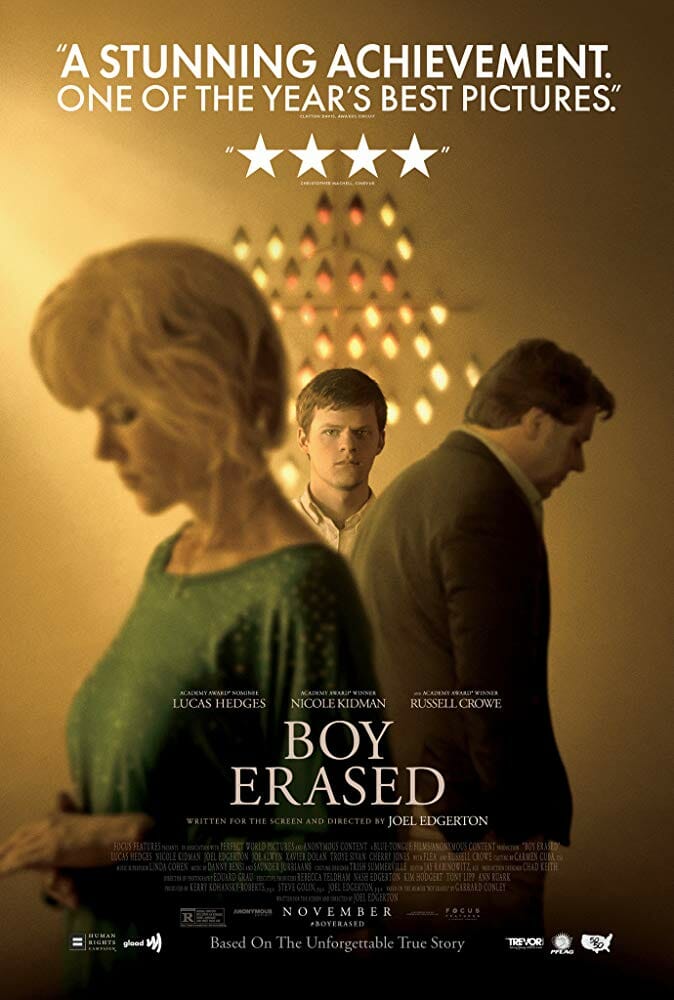 Based on the memoir of the same name by Garrard Conley, GLAAD Media Award-winning Boy Erased tells the story of Jared, whose pastor father sends him to a so-called “conversion therapy” center, Love in Action (LIA). Once there, Jared sees all the horrors that the leader, Victor Sykes, inflicts on the men and women of program. After witnessing several incidents of emotional and physical abuse towards the young people in LIA, Jared makes his escape and is rescued in part by his mother, Nancy, and a fellow member of the LIA program. Nancy tells Jared of her regret in sending him to LIA and becomes his ally.
Based on the memoir of the same name by Garrard Conley, GLAAD Media Award-winning Boy Erased tells the story of Jared, whose pastor father sends him to a so-called “conversion therapy” center, Love in Action (LIA). Once there, Jared sees all the horrors that the leader, Victor Sykes, inflicts on the men and women of program. After witnessing several incidents of emotional and physical abuse towards the young people in LIA, Jared makes his escape and is rescued in part by his mother, Nancy, and a fellow member of the LIA program. Nancy tells Jared of her regret in sending him to LIA and becomes his ally.
The end of the film takes place four years later and shows Jared living happily as a writer in New York with his boyfriend. An article about his terrible experience at Love in Action brings him to a confrontation with his father, Marshall, who had still refused to accept Jared. Marshall finally takes steps to accept Jared as an out gay man. The film ends with a postscript talking about how “conversion therapy” is still legal in most U.S. States. The film overall sheds light on some of the horrors that are legally inflicted on LGBTQ youth, and how important it is for parents to accept their lesbian, gay, bisexual, trans, and queer children.
Mary, Queen of Scots
Widest theatrical release: 841 theaters
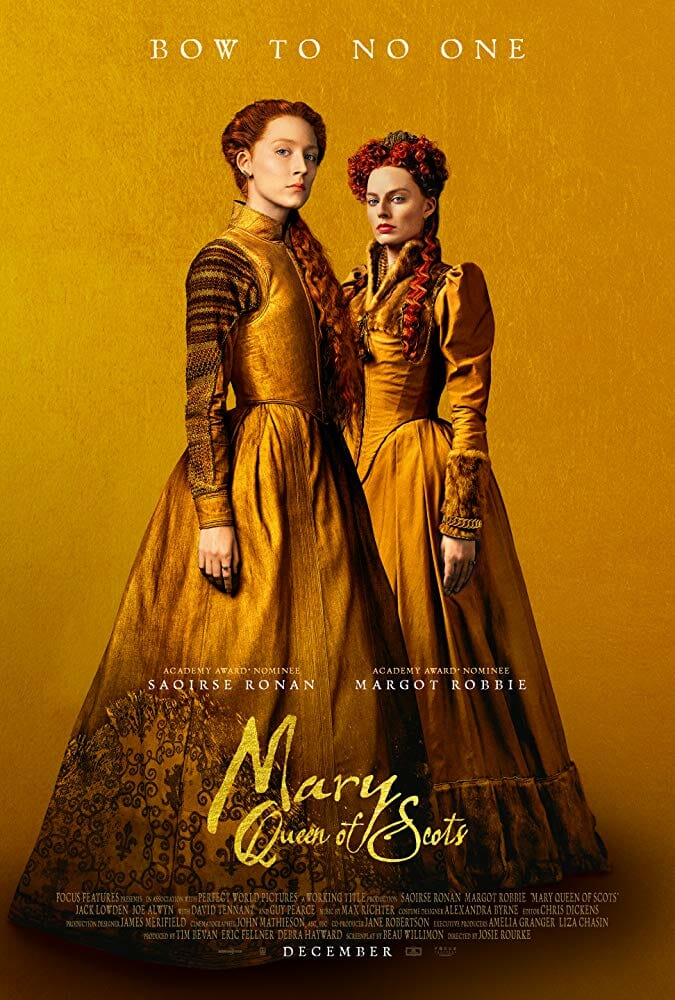 This film that follows decades of rivalry between Mary, Queen of Scots and Elizabeth I shows several relationships come and go in the queens’ lives. One of Mary’s closest confidants is a court musician, David Rizzio, who once says to her, “Is it a sin that I feel more a sister to you than a brother?” Mary’s cousin and second husband, Lord Henry Darnley, has an attraction to David and the two men have sex on the night of Henry’s wedding to Mary. Henry is later one of a group of men who accuse Mary of committing adultery with David. Rather than admit to his own relationship with David, Henry goes along with signing David’s death order, and is one of the many people who brutally stab David to death. Henry is later forced to live under house arrest away from Mary. He is seen briefly with another male lover, but both men are quickly killed as part of a political plot.
This film that follows decades of rivalry between Mary, Queen of Scots and Elizabeth I shows several relationships come and go in the queens’ lives. One of Mary’s closest confidants is a court musician, David Rizzio, who once says to her, “Is it a sin that I feel more a sister to you than a brother?” Mary’s cousin and second husband, Lord Henry Darnley, has an attraction to David and the two men have sex on the night of Henry’s wedding to Mary. Henry is later one of a group of men who accuse Mary of committing adultery with David. Rather than admit to his own relationship with David, Henry goes along with signing David’s death order, and is one of the many people who brutally stab David to death. Henry is later forced to live under house arrest away from Mary. He is seen briefly with another male lover, but both men are quickly killed as part of a political plot.
Though both David and Henry existed in history, their relationship was an addition of the filmmakers. Given the sensationalized stories, the direct tie between Henry’s evil act and his gay relationship, and the ultimate gruesome death of every queer character, we wish the filmmakers had left this idea on the cutting room floor. There is a variety of LGBTQ stories and figures in history that are deserving of their own films and whose stories range from tragic to jubilant. It would be much more interesting to explore those.
Tully
 Widest theatrical release: 1,356 theaters
Widest theatrical release: 1,356 theaters
Tully is a drama about a mother of three experiencing post-partum depression, and stars Charlize Theron as protagonist Marlo. Early in the film, Marlo runs into another woman, Violet, an ex-girlfriend from her time living in Bushwick. Marlo is now married to a man, Drew, and her bisexuality is presented very casually. She talks later in the film about how in love she was with Violet, a sign that the film isn’t trying to pass off her bisexuality as a “phase” from one point in her life. This kind of casual inclusion – where the character’s identity is confirmed on screen but not the full extent of their story – is something GLAAD would like to see more films employ in the future.
Won’t You Be My Neighbor?
Widest theatrical release: 893 theaters
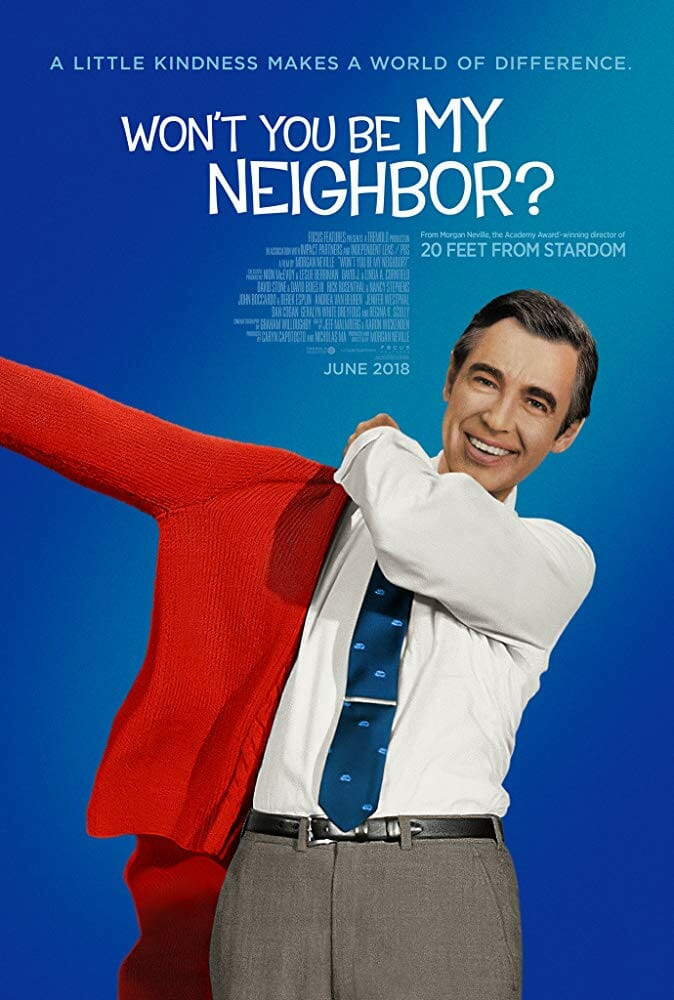 This critically acclaimed documentary follows Fred Rogers and the phenomenon that was Mister Rogers’ Neighborhood. One of the series regular characters is police officer Clemmons, played by François Clemmons, Mr. Roger;s neighbor who was his good friend. In real life, Clemmons was gay. The documentary talked about how Rogers did not allow him to be open about his sexuality, given that the sponsors in the ‘60s would not stand for it. In a talking head, Clemmons talks about Rogers eventually evolving and became a sort of father figure to Clemmons.
This critically acclaimed documentary follows Fred Rogers and the phenomenon that was Mister Rogers’ Neighborhood. One of the series regular characters is police officer Clemmons, played by François Clemmons, Mr. Roger;s neighbor who was his good friend. In real life, Clemmons was gay. The documentary talked about how Rogers did not allow him to be open about his sexuality, given that the sponsors in the ‘60s would not stand for it. In a talking head, Clemmons talks about Rogers eventually evolving and became a sort of father figure to Clemmons.
Recently, an excerpt from a 2015 biography of Fred Rogers (The Good Neighbor) surfaced on social media. The segment is a quote from a conversation Rogers had with his friend Dr. William Hirsch, an out gay man. When Rogers is talking about sexuality being measured on a scale, he says, “Well, you know, I must be right smack in the middle. Because I have found women attractive and I have found men attractive.” This quote would imply that Rogers was bisexual, though in the documentary Clemmons specifically says that Rogers was straight. Gauging from the documentary contents, GLAAD did not count Rogers as a bisexual character in its tally.

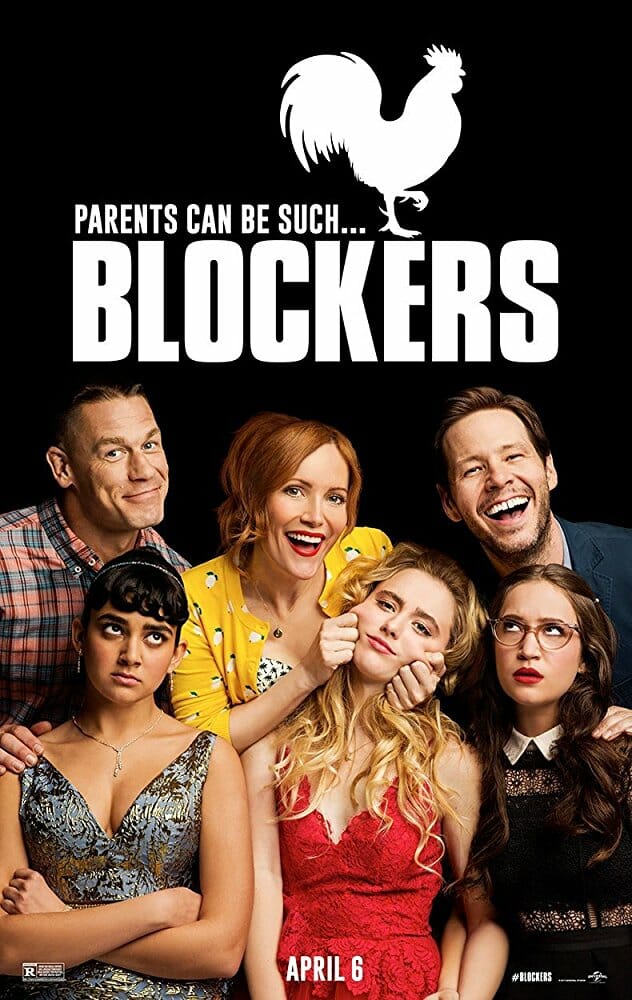
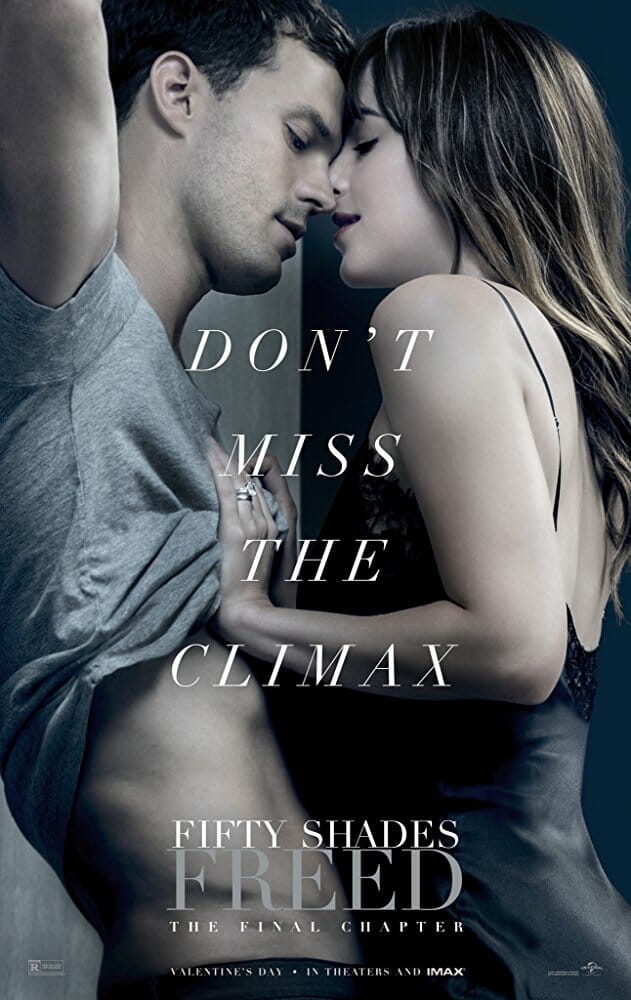 Vito Ruso Test: Fail
Vito Ruso Test: Fail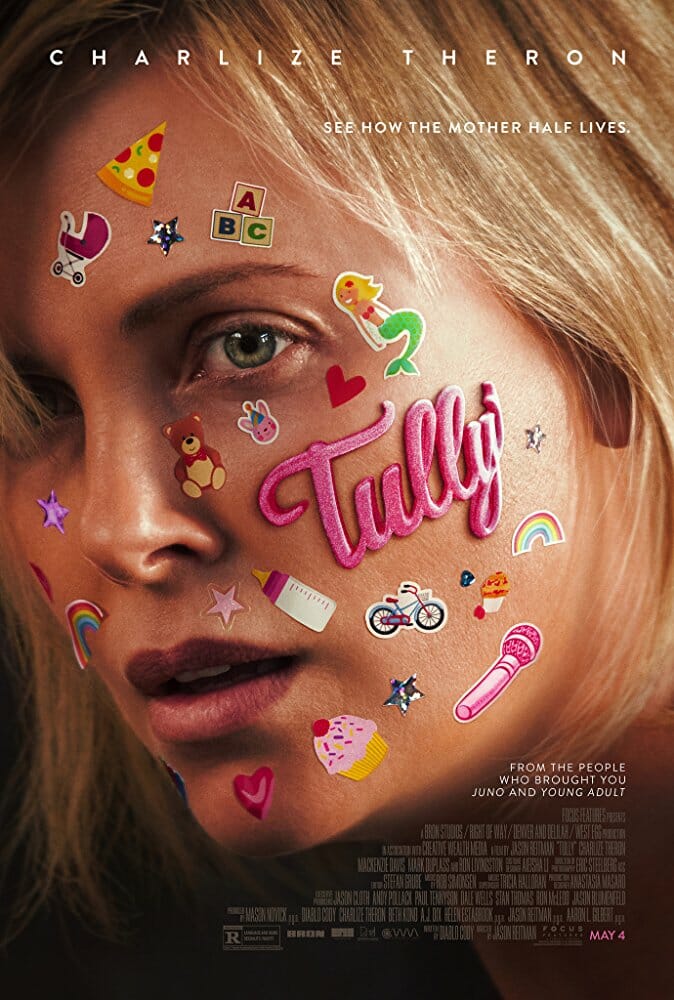 Widest theatrical release: 1,356 theaters
Widest theatrical release: 1,356 theaters










